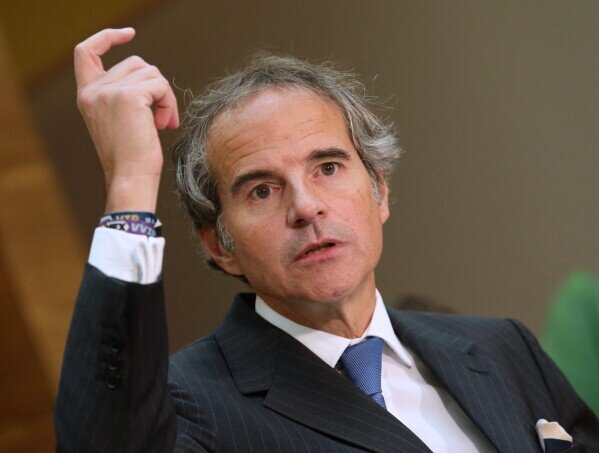Grossi is at it again: IAEA chief repeats incendiary claims on Iran’s nuclear program

TEHRAN – The latest remarks by Rafael Grossi, Director General of the International Atomic Energy Agency (IAEA), have reignited controversy over the agency’s neutrality of its reports on Iran’s peaceful nuclear program, as well as the role the UN body plays in helping Western states justify pressure and aggression against the country.
In a Thursday interview with France 24, Grossi claimed that despite the recent U.S. and Israeli attacks on Iran’s nuclear facilities, the Islamic Republic still possesses enough highly enriched uranium and technical capability to produce several nuclear weapons. He added that although the facilities at Natanz, Isfahan, and Fordow had been “severely damaged,” Tehran retains “the necessary knowledge and materials” to rebuild its nuclear infrastructure within a year.
With U.S. President Donald Trump, who recently admitted that he was “in charge” of the war against Iran, saying multiple times since June that he has “obliterated” Iran’s nuclear capabilities, as well as efforts underway to restart negotiations, Grossi’s remarks about Iran’s pursuit of nuclear weapons look particularly out of touch and unnecessary.
In the weeks leading up to the June attacks, an IAEA report overseen by Grossi claimed Iran’s uranium enrichment had reached levels “higher than those typical in non-military programs.”
That report, described by Iranian officials as “misleading and selective,” was repeatedly cited by the Israeli regime to rationalize its illegal strikes on Iran’s peaceful nuclear facilities.
Tehran’s ambassador to the United Nations, Amir Saeid Iravani, later condemned the IAEA for acting as a “political tool rather than a technical body,” arguing that its distorted reporting directly contributed to the chain of events that culminated in the attacks.
Now, only months later, Grossi’s repetition of similar claims has renewed suspicions that the Agency is once again providing political cover for the West’s pressure campaign against Iran.
IAEA’s mandate and selective silence
According to international law, the IAEA is obligated to protect member states engaged in peaceful nuclear activities from external threats. The June attacks — carried out against safeguarded civilian facilities — represent a flagrant violation of that principle. Yet the Agency has never condemned those strikes.
Instead, its director has chosen to make ambiguous statements that cast doubt on Iran’s intentions, effectively shifting the narrative away from the illegality of the aggression and toward baseless suspicions about Iran’s peaceful program.
This selective silence, Iranian analysts warn, undermines the IAEA’s credibility as an impartial institution and erodes the trust required for meaningful cooperation.
While Grossi and Western media focus on worst-case scenarios, Tehran has continued to act constructively and diplomatically. In late August, as tensions rose over the snapback of UN sanctions, Iran presented a comprehensive offer aimed at preventing further escalation.
According to information obtained by the Tehran Times, Iran proposed suspending enrichment above 60 percent and transferring its enriched uranium stockpile either to a neutral country or directly to Europe, while maintaining full cooperation with the IAEA. The proposal, initially welcomed by European mediators, was set to be announced in a trilateral meeting involving Iranian Foreign Minister Abbas Araghchi, Grossi, and U.S. envoy Steve Witkoff on the sidelines of the UN General Assembly. However, just days before the announcement, Washington unilaterally revised the conditions, demanding that Iran surrender its uranium before any suspension of the snapback, prompting Tehran to cancel the meeting. Following this collapse, the European trio invoked the snapback mechanism, formally reimposing pre-JCPOA UN sanctions, though Russia, China, and over 100 other countries have refused to recognize them as legitimate.
Throughout this period, Iran has emphasized that its nuclear program is entirely peaceful and remains under constant IAEA supervision. The country has allowed more inspections than any other member state and has repeatedly affirmed that nuclear weapons have no place in its defense doctrine. The Leader of the Islamic Revolution, Ayatollah Seyyed Ali Khamenei, has issued a clear religious decree prohibiting the development, possession, or use of nuclear weapons, a position consistently reiterated by Iranian officials in international forums.
Despite these tensions, Tehran has reaffirmed its willingness to engage in dialogue based on mutual respect, equality, and adherence to international law.
Leave a Comment